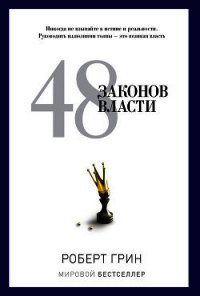Реконизм. Как информационные технологии делают репутацию сильнее власти, а открытость — безопаснее п - Петров Роман
96. Dunbar, R.i.m. "Neocortex Size as a Constraint on Group Size in Primates" Journal of Human Evolution 22.6 (1992)
97. Carrizales, Tony, Functions of E-Government: A Study of Municipal Practices, State & Local Government Review, Vol. 40, No. 1 (2008), pp. 12-26, Published by: Carl Vinson Institute, University of Georgia, Stable URL: http://www.jstor.org/stable/25469771
98. Aldenderfer, Mark S., Blashfield, Roger K. Cluster Analysis. Newbury Park, Calif. [u.a.: Sage, 2006.
99. Сименко, И.А."ВикиГуглоМетаТрекерная DNS / Peer-to-Peer / Хабрахабр Web. 16.01.2012. http://habrahabr.ru/blogs/p2p/114029/.
100. Loomis, Mildred J. Decentralism: Where It Came from - Where Is It Going? Montréal, Quebec: Black Rose, 2005.
101. Olmstead, T. History of the Persian Empire The University of Chicago Press, 1948
102. Gates, Buffet in Delhi with their 'Giving Pledge' - Economic Times. articles.economictimes.indiatimes.com. The Economic Times. 24 March 2011. Retrieved 24 April 2011.
103. Суриков, И. Е., Античная Греция, Политики в контексте эпохи Время расцвета демократии, Москва, Наука, 2008
104. Hayek, Friedrich August Von. Denationalisation of Money: an Analysis of the Theory and Practice of Concurrent Currencies. London: Institute of Economic Affairs, 1976.
105. Aldridge, Theresa J., Patterson, Alan, LETS Get Real: Constraints on the Development of Local Exchange Trading Schemes, Vol. 34, No. 4 (Dec., 2002), pp. 370-381, Published by: Blackwell Publishing on behalf of The Royal Geographical Society (with the Institute of British Geographers),Stable URL: http://www.jstor.org/stable/20004268
106. Spengler, Oswald. The Decline of the West. London: George Allen & Unwin, 1980.
107. Baumol, William J. "On Taxation and the Control of Externalities" The American Economic Review 62.3 (1972): 307-22. Web. 12 Dec. 2011. http://www.jstor.org/stable/1803378.
108. Бессонов, Б. Н. Социальная философия Франкфуртской школы (Критические очерки). Москва: Мысль, 1975.
109. Popper, Karl R. The Open Society and Its Enemies,. Princeton, NJ: Princeton UP, 1966.
110. Fukuyama, Francis. Trust: the Social Virtues and the Creation of Prosperity. New York: Free, 1995.
111. Manuet, F.E. Manuet, F.P. Utopian Thought in the Western World. Cambridge (MA): Harvard University Press, 1979.
112. Kreps, D., Wilson, R. "Reputation and Imperfect Information" Journal of Economic Theory 27.2 (1982): 253-79.
113. Homans, George Caspar. The Human Group. New Brunswick, U.S.A.: Transaction, 1992.
114. Solove, Daniel J. The Future of Reputation: Gossip, Rumor, and Privacy on the Internet. New Haven: Yale UP, 2007. http://docs.law.gwu.edu/facweb/dsolove/Future-of-Reputation/text.htm.
115. Buskens, Vincent. "Social Networks and the Efect of Reputation on Cooperation" Department of Sociology Utrecht University Prepared for the Proceedings of the 6th International Conference on Social Dilemma (1998). Utrecht University. Department of Sociology Utrecht University, 30 Mar. 1998. Web. http://www.fss.uu.nl/soc/iscore/papers/paper042.pdf
116. Wang, Yao, Vassileva, Julita. "Trust and Reputation Model in Peer-to-Peer Networks" Proceedings of the 3rd International Conference on Peer-to-Peer Computing. Washington, DC, USA: IEEE Computer Society, 2003. 150. P2P &0acute;3.
117. Turner, James T. "Factors Influencing the Development of the Hostage Identification Syndrome" Political Psychology 6.4 (1985): 705-11. Web. 12 Dec. 2011. http://www.jstor.org/stable/3791024.
118. Wilson, James Q., Kelling, George L. Broken Window. The Police and Neighborhood Safety. New-York: Manhattan Institute for Policy Research, 1982. http://www.manhattan-institute.org. Manhattan Institute for Policy Research. Web. 13 Jan. 2011. http://www.manhattan-institute.org/pdf/_atlantic_monthly-broken_windows.pdf
119. Kelling, George L., Coles, Catherine M. Fixing Broken Windows: Restoring Order and Reducing Crime in Our Communities. New York: Simon & Schuster, 1996.
120. Keizer, K., Lindenberg, S., Steg, L. "The Spreading of Disorder" Science 322.5908 (2008): 1681-685.
121. Harcourt, Bernard E., Ludwig, Jens. "Broken Windows: New Evidence from New York City and a Five-City Social Experiment" The University of Chicago Law Review 73.1 (2006): 271-320. Web. 13 Dec. 2011. http://www.jstor.org/stable/4495553.
122. Russell, Bertrand. Marriage and Morals. New York: Liveright, 1929.
123. Maslow, Abraham H. Motivation and Personality. New York: Harper, 1954.
124. Финляндия. Организация по безопасности и сотрудничеству в Европе. Договор по открытому небу. Хельсинки: http://www.osce.org, 24 марта 1992. Web. 13 Dec. 2011. http://www.osce.org/ru/library/14131.
125. Koplow, David A. "Back to the Future and up to the Sky: Legal Implications of "Open Skies" Inspection for Arms Control" California Law Review 79.2 (1991): 421-96. Web. 13 Dec. 2011. http://www.jstor.org/stable/3480691.
126. Ganascia, J.-G. "The Generalized Sousveillance Society" Social Science Information 49.3 (2010): 489-507.
127. Волков, Леонид, Крашенинников, Федор. "Облачная демократия". Web. 12 Dec. 2011. http://cdem.ru/.
128. Бузескул, В. П. История афинской демократии / Вступ. ст. Э. Д. Фролова; науч. редакция текста Э. Д. Фролова, Х. М. Холода. — СПб.: ИЦ «Гуманитарная Академия», 2003. — 480 с. — (Серия «Studia Classica»). Web: http://www.sno.pro1.ru/lib/buzeskul_istoriya_afinskoy_demokratii/
129. Ким, Г.Ф. Общее и особенное в историческом развитии стран Востока: материалы дискуссии об общественных формациях на Востоке (азиатский способ производства). 1966.
130. Кучинский, Александр Владимирович. Преступники и преступления. Законы преступного мира. Обычаи, язык, татуировки. Донецк: Сталкер, 1997.
131. Илюшечкин, В. П. Система внеэкономического принуждения и проблема второй основной стадии общественной эволюции. Москва, 1970.
132. Илюшечкин, В. П. Эксплуатация и частная собственность в сословно-классовых обществах. Москва, 1990.
133. Кобищанов Ю. М., Феодализм, рабство и азиатский способ производства. Comp. Г Ф. Ким. 1966. Общее и особенное в историческом развитии стран Востока: материалы дискуссии об общественных формациях на Востоке (азиатский способ производства).
134. Илюшечкин, В. П. Сословно-классовое общество в истории Китая. Москва, 1986.
135. Илюшечкин, В. П. Система и структура добуржуазной частнособственической эксплуатации. Москва, 1980.
136. Кейн, Джон. Общая теория занятости, процента и денег. Москва: Гелиос АВР, 2002.
137. Маркс, Карл. Капитал. Критика политической экономии. Москва: Политиздат, 1983.
138. Сергеев, Александр. "От сигнала к смыслу" Вокруг света 5.(2836) (Май 2010).
139. Кузовков, Ю. В. Мировая история коррупции. http://www.yuri-kuzovkov.ru/second_book/: Интернет-версия, 2010.




